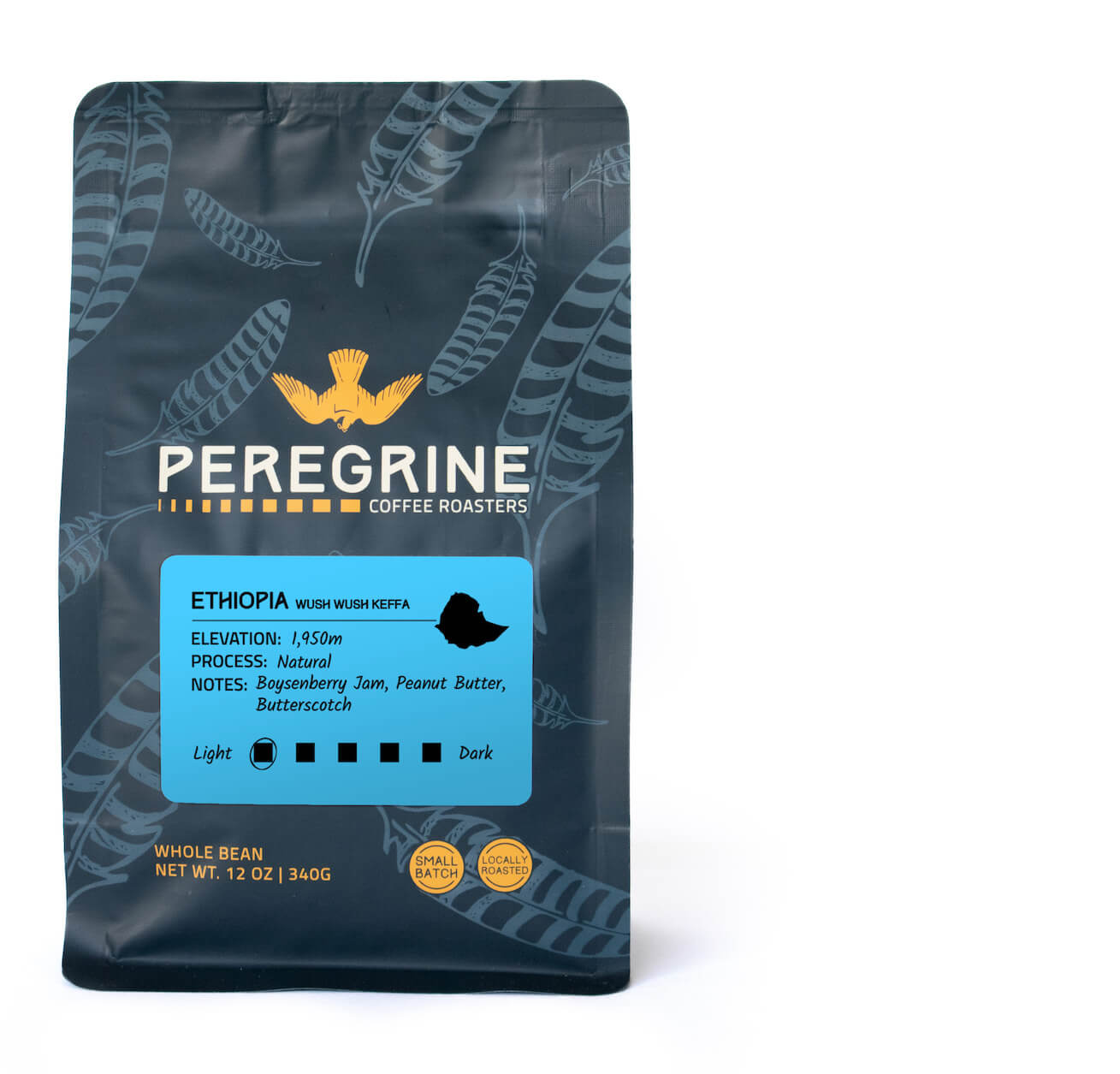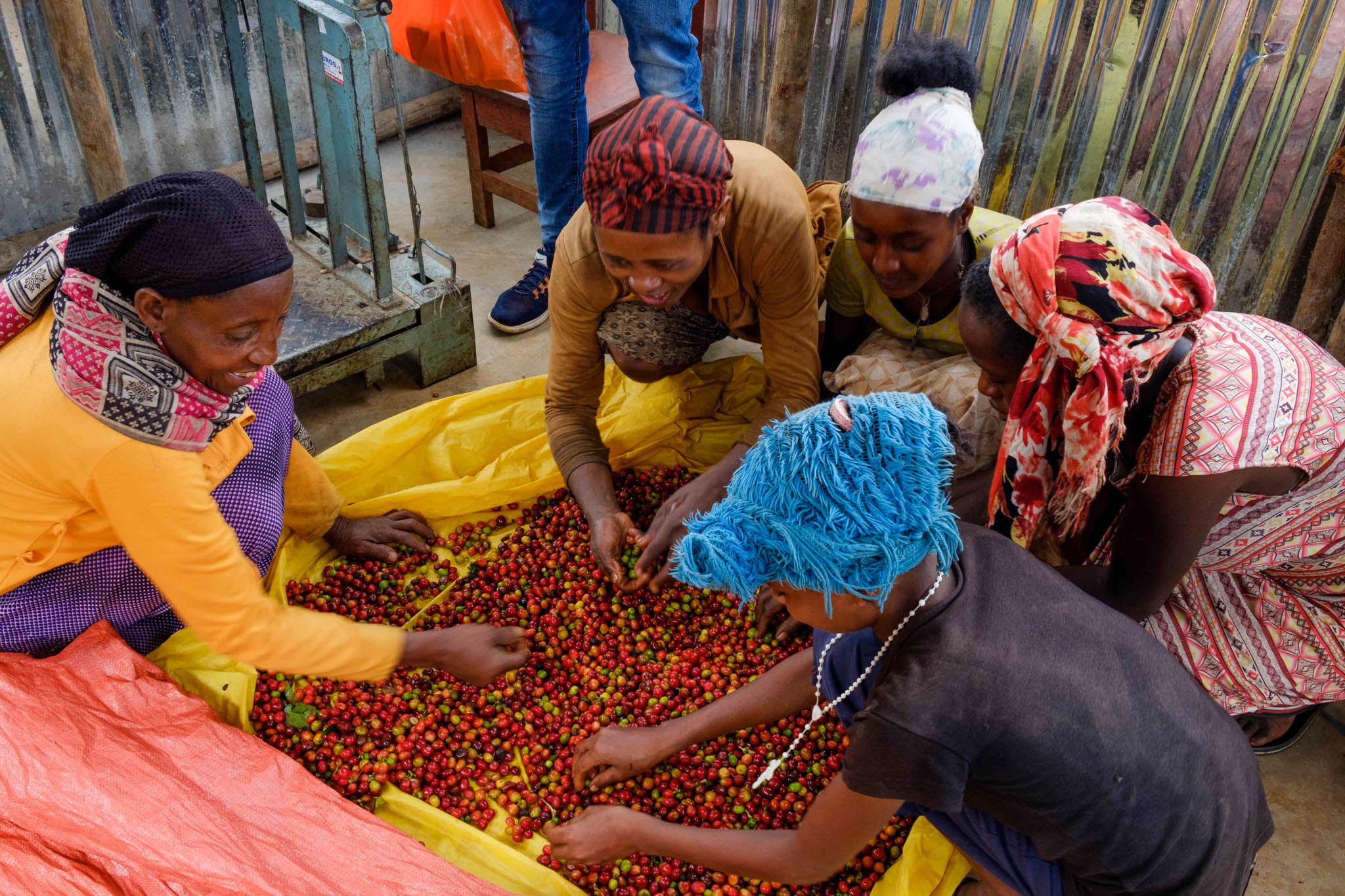Farming Notes
We are privileged to have the opportunity to bring in this fantastic coffee from Ethiopia thanks to our friends at Catalyst Trade.
Our partners at Catalyst Trade have done such a brilliant write-up on the farming at Wush Wush that I must defer to them to provide some information…
“Approximately 2,500 smallholder farmers from the surrounding area bring their cherries to the washing station, where coffees are accepted or rejected based on quality and then sorted by hand before pulping. Like in most of Ethiopia, growers in the Ginbo district are smallholders, aka “garden farmers,” so called because most of them are producing coffee in the “garden” areas around their homes, and often harvesting cherries from coffee occurring naturally on the land where they live. Farm sizes tend to be between .5 to 2 hectares in size on average, though occasionally can reach upwards of 10 hectares. The average yearly yield in green coffee from the smaller farms is around 2 to 4 bags.”
Peregrine staff found this method of gathering from home “gardens” incredibly compelling and intimate. What you are tasting in your cup was carefully tended by a family in their own home. It doesn’t get any better than that.
Dinkalem’s Washing Station
GENALEM GEWYERO – “GOD IS GOOD!”
“This is the motto which hangs on the entrance to Dinkalem’s dry mill, across the road from the Wush Wush washing station. Dinkalem’s washing station is one of the most cheerful we get to visit each year, with smiling faces all around, clean facilities, and a well-organized production flow. Dinkalem himself is a short, cheerful man who’s proud of all he’s accomplished in partnership with his wife, Sofia, for the area. Together they are a kind of power couple: she organizes charitable work such as educational sessions for children and food distribution to disenfranchised Keffa people, and he runs the coffee business in two locations (one in Wush Wush and one in Dinbira for washed and natural processed).
They live in the town of Wush Wush in a rambling house that seems mostly hallways and surprising corners. Sofia is known for her kirkele, or lamb stew, which is the best we’ve ever tasted—it’s all savory chunks of stewed lamb so tender it drips off the spoon, gleaming fatty, buttery broth, and surprising layers of flavor that just keep revealing themselves on the tongue. They have 6 children, who love to play vigorous hide-and-seek with our daughter.”
The View from Kaffa
“Every part of Ethiopia has its own mystique, and the Western region of Kaffa is no exception. The roads that thread the map are sparse and constantly traveled, giving up the rich scent of the red soil they are built from under the tires of Land Rovers and donkey carts. Rolling away from the roads like theater curtains are the fertile patchwork hills that disappear into a soft misty sky. Puffy trees emerge against the skyline like cotton balls dyed the deepest spring green.
The people of Kaffa carry their pride in coffee close to the bone. We’ve all heard the stories: Kaldi, a bored goatherder c. 850, notices his goats have extra energy after eating the fruit of a nearby bush, tries some for himself, and thus the coffee ritual is born. Whether that’s really how coffee was discovered or not, we do know the legend originates from Kaffa, and the very name of our beloved beverage derives from the region in the southwestern highlands of Ethiopia.”
Catalyst Trade has shared with us invaluable history and knowledge about this region and its coffee, along with pictures that are truly breathtaking. We are indebted to them and their incredible work on the ground with Dinkalem, Sofia, and the people of Wush Wush.
A special “thank you” to Leslie Wyatt and Emily McIntyre at Catalyst Trade for their hard work in getting this coffee to us all the way in Westcliffe.



